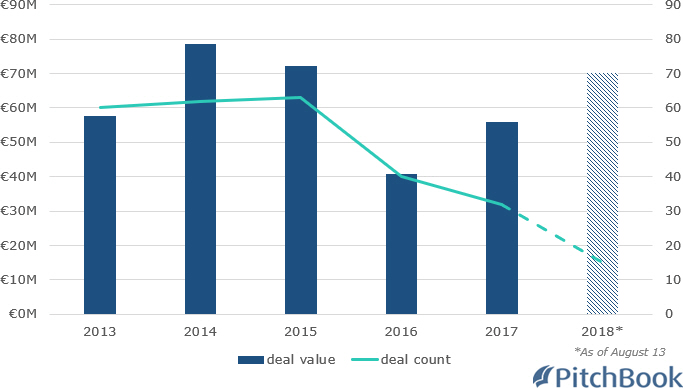Gaming
Mobile gives the video game industry an extra life
August 16, 2018
The global gaming market is expected to reach $137.9 billion in revenues this year, according to market intelligence company Newzoo, and that number is predicted to grow to $200 billion by 2025. With almost 30% of the world's population now playing games, the meteoric rise of the once-obscure sector can't and shouldn't be ignored by the investment community.
Ready player one
The introduction of new platforms has dramatically changed the landscape of the global gaming industry. PCs and consoles have traditionally led the market, but the proliferation of mobile devices has been key in accelerating its growth as technology has evolved. Since the introduction of the iPhone in 2007, revenues in the mobile gaming space have grown by over $100 billion. It is predicted that this year, for the first time, most of the money spent on gaming will go towards mobile platforms.And investors are taking notice. Activity in the European mobile gaming space has already surpassed last year's total of €55.8 million across 32 VC deals, per the PitchBook Platform. So far this year, 14 startups have raised over €70 million, including app maker Small Giant's $41 million late-stage round in February led by EQT Ventures, and Oh BiBi's $21 million Series B in June from investors such as Atomico. Small Giant is using the funds for international expansion and recruitment, while Oh Bibi will funnel its financing into developing further content.
VC deals in Europe's mobile gaming industry
The rise of the casual gamer
Consoles and PCs have dominated the market in the past, but an increase in casual gamers has caused mobile platforms to eclipse them. This group often has limited interest and/or time to spend on games compared with console and PC gamers, who tend to take gaming more seriously.
Casual gamers also aren't your stereotypical teenage boy playing on a console for 20 hours a day, either. In fact, out of a total of 2.1 billion gamers, some 63% are female and 23% are over 65, according to research from marketing agency Mediakix.
The ability to pull out a phone and play a simple, quick game such as 'Candy Crush' on the way to work or during a 10-minute coffee break is a big part of mobile games' appeal—as well as their business model. Rather than forcing consumers to shell out £45 for the latest version of a console game, mobile endeavours commonly adopt the free-to-play model, making them accessible to a wider audience. Many of these games offer in-app purchases for new features or add-ons, such as characters or objects related to the plot of the game.
Old game, new platform
While games made specifically for mobile platforms have been a key force in the market, they aren't the only ones driving growth. Content that was traditionally made for PCs and consoles is now finding its way onto smartphones, allowing legacy franchises the ability to tap in to a wider audience. On top of this, the ever-improving quality of the devices themselves—as well as the games—has allowed publishers to convert their products to new gadgets.For example, 'Fortnite: Battle Royale' generated more than $1 billion in revenues through in-game purchases alone, and although this game was designed with PC and consoles in mind, it was released on iOS devices earlier this year and will be coming to Android this summer.
Big gaming giants are also taking the plunge into the world of mobile, as demonstrated by video game holding company Take-Two Interactive's recent $250 million acquisition of Barcelona-based video game developer Social Point, which was previously backed by investors including Highland Europe and IdInvest Partners. Take-Two is the parent company of games including 'Grand Theft Auto'.

Exits in the gaming space
Europe has seen several other high-profile exits for investors, the largest of which was gaming giant Tencent's acquisition of around 84.3% of 'Clash of Clans' mobile game developer Supercell from SoftBank for $8.6 billion in 2016. Another unicorn, King Digital Entertainment, was bought by Activision Blizzard in a deal worth $5.9 billion following its nearly $500 million IPO in the same year.While IPOs in the mobile gaming space haven't matched acquisitions in terms of size, they have still produced good results. 'Angry Birds' publisher Rovio Entertainment received €424.6 million when it listed on the NASDAQ-Helsinki stock exchange in 2017, while this year's listing of Balderton Capital- and Reliance Entertainment-backed Codemasters generated £185 million.
As the mobile gaming space attracts more players, it's safe to assume that the amount of capital going towards these companies will only level up.
Related read: Amazon, Twitch and the rise of game streaming

Comments:
Thanks for commenting
Our team will review your remarks prior to publishing.
Please check back soon to see them live.